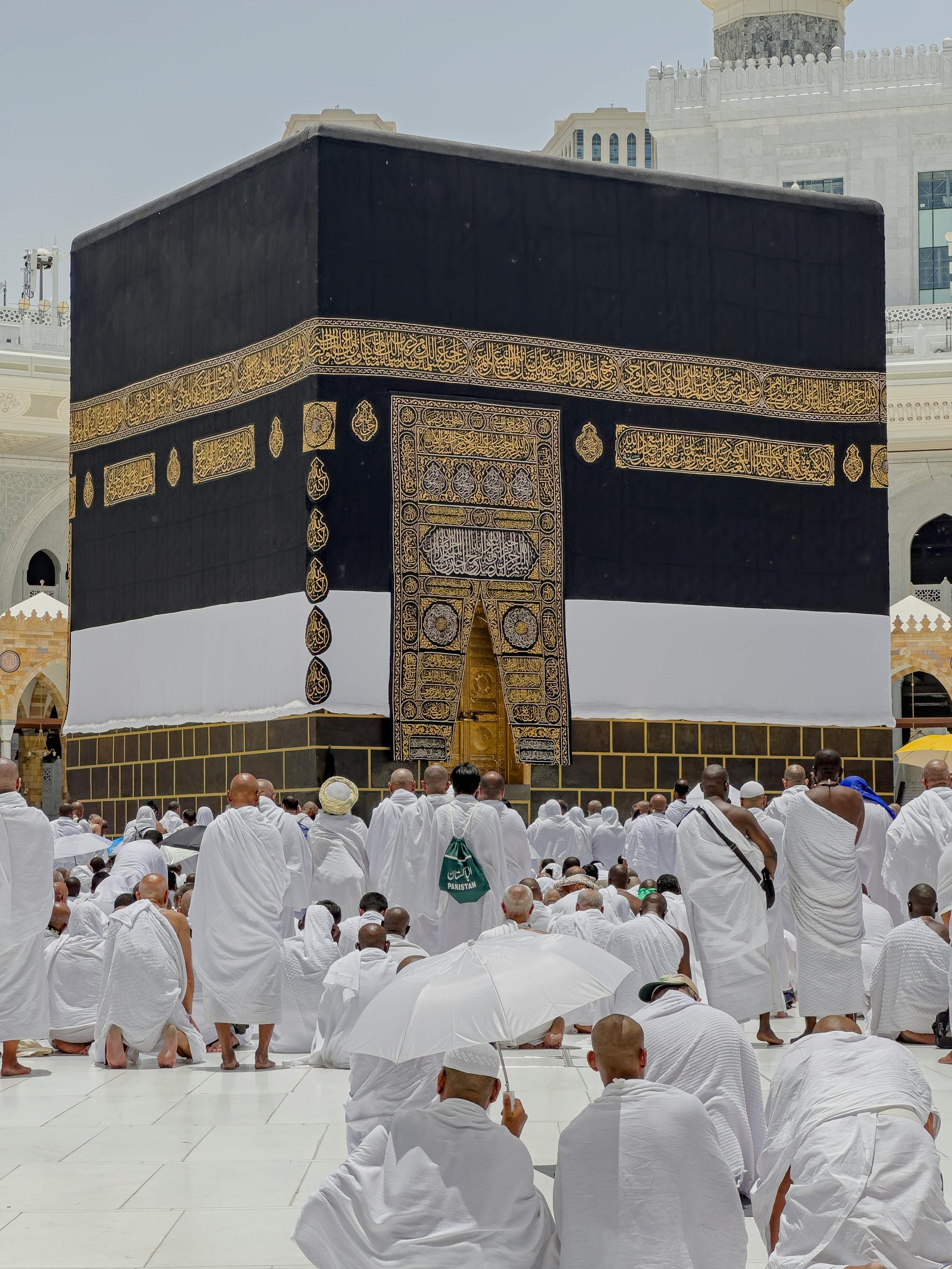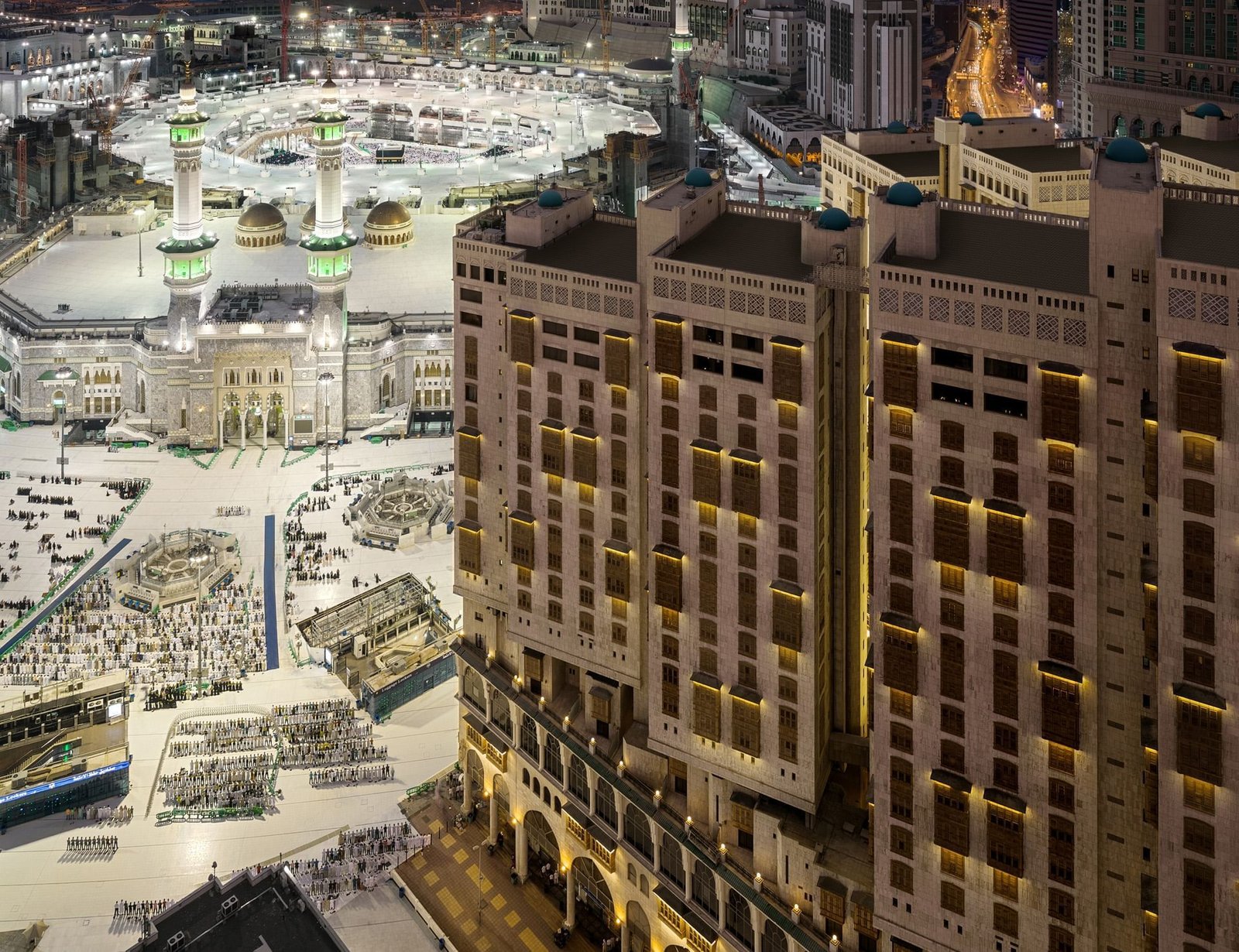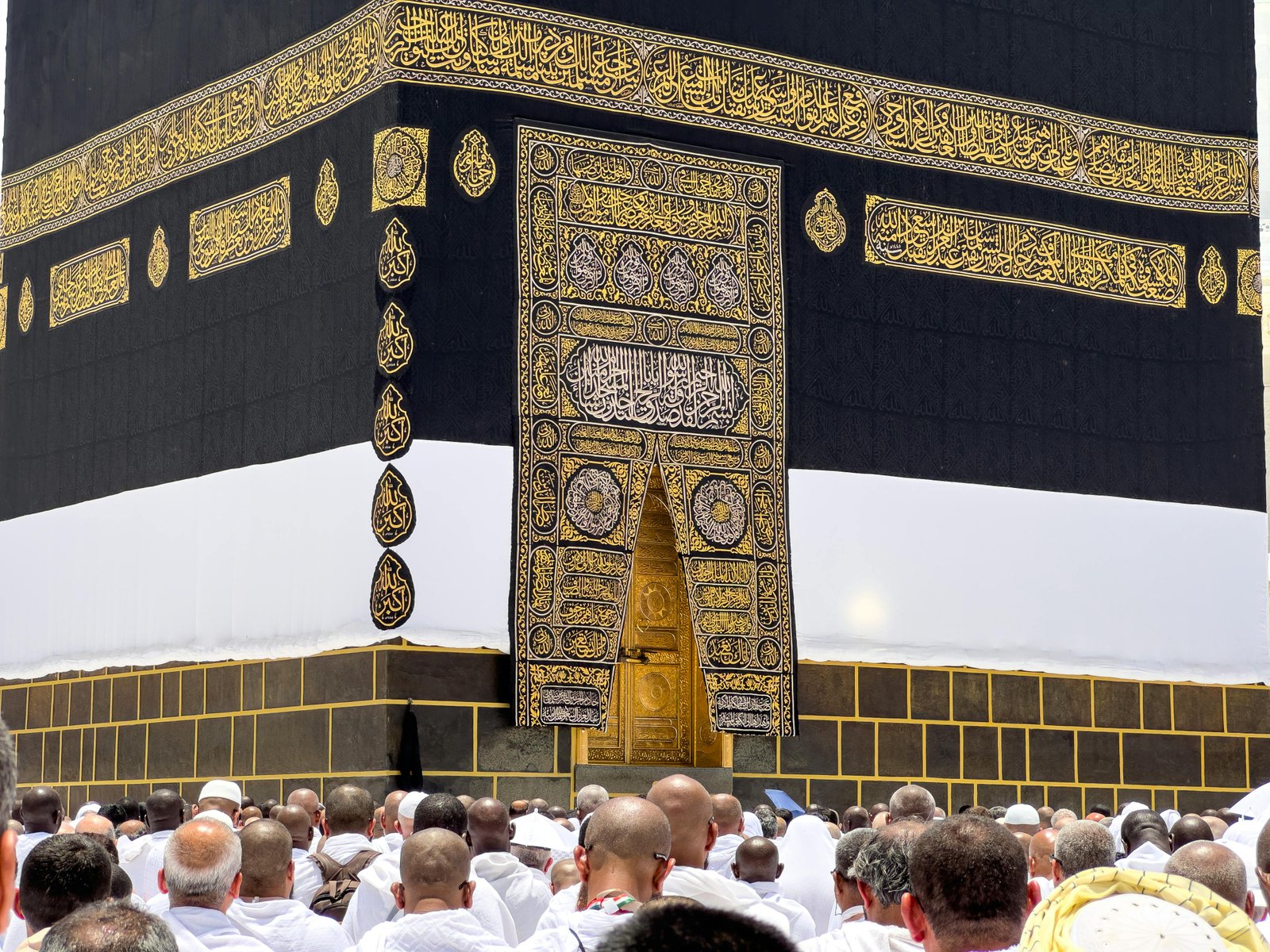In Search of the Moderate Muslim: It Takes an Ummah
Recently, I attended the burial of an important friend. My friend was a Rabbi. Rabbi Avner Bergman was an extraordinary guide and, even though I am Muslim, I considered him to be my very own Rabbi. At the encouragement of a Jewish American friend in DC and an Israeli friend in LA, I wrote about the impact of his loss in the Jerusalem Post because I wanted to show through our relationship, there is a special plane, a dimension in which Muslims and Jews can share a mutual love.

Image by Flickr
Soon after publication, I received an anguished response from one of my closest friends. She had waited several days to digest her feelings before disclosing them to me. As I scrolled through the email, I found myself pausing, periodically arrested by waves of distress and dismay.
Her first objection was to my mention of the Israeli friend who had encouraged me to publish. She writes:
The way we have grown up in the Middle East, there is no place for friendship with an Israeli. That I can say for sure has been drummed in so hard and strong that no amount of thought or reason can change. Why is that I ask? Partly it is because of history and how Israel originated and how they have persecuted Palestinians and continue to do. Partly it is because of our own failings and impotence in the face of cruelty and injustice. We see and hear of their crimes on a daily basis and yet we as a country, as a nation and as a brethren of faith, have not raised more then a feeble voice to say “no” or “stop.” This impotence makes us hate ourselves and hate whatever reminds us of our inferiority. But lastly it is the way the Israeli’s have manipulated the world stage and continue to do in many aspects.
Although the rational part in me tells me that not all Israelis are the same and they are some amongst them who have helped Palestinians more than we will ever do but these I would not call Israeli because they do not believe in its ideology. So an Israeli is an enemy never to be befriended.
I read the above, like you, stunned.
My Israeli friend, Alon Avidan is a brown-eyed, tender-hearted man of medicine. He has an irrepressible kindness, warmth which I noticed immediately upon meeting him. We became friends, finding ourselves already colleagues in the same field. It was this Israeli with whom I sought counsel months earlier, when the same Muslim friend wrote to me about an ailing family member. Together Alon and I formulated a careful plan of care, searched the medical literature and wrote a detailed email consult to help in her hour of need. Unbeknown to her, Alon, ‘the Israeli,’ had already acted as a friend to her.
Her observation that a good Israeli was anathema or more accurately, (in her assessment) an oxymoron struck me as frankly delusional. Clearly, if Alon had been ‘good,’ and good to a Muslim, he couldn’t be Israeli! Go back and read that section of her reasoning. But her observation about ‘impotence’ was one I understood well, given my experience of living in her nation for two years, one which I published in my first book, In the Land of Invisible Women.
Feelings of powerlessness, lack of a public palpable voice and an inability to influence ruling dictates are hard to imagine unless one has lived both outside of an experience of Western democracy (however flawed its nature) and beyond the bounds of a vibrant, free press. So, while I empathized, I had to accept this is how much, in fact most, of the Muslim Ummah (global Muslim community) must feel, pretty much all of the time. Relating to Jews, for the modern day Muslim, returns always to the denominator of Israel’s modern birth and fraught infancy, though agreed, much additional animosity bursts from deeper roots.
Her observations about self-hate among Muslims including her fellow citizens are accurate. I hadn’t really grasped how deep this self loathing this could run despite over a decade of relationships with Muslims in the Middle East and a lifetime of my own Pakistani heritage. Pejorative comment has long been made concerning the ‘self-loathing Jew’ but I would suggest the self-loathing Muslim appears to be a much more relevant problem today. My friend’s struggle with her own sentiments perfectly captures the self-hate which exists deep within many Muslims.
Her views in particular were deeply shocking to me. We have a long friendship: I regard her as the sister I never had; we have worshiped together on several occasions at Makkah, even performing the holy pilgrimage of Umrah around the Kaa’ba, the cuboid building Muslims recognize as the House of God built first by Abraham. Ironically, it was she who first took me to see the imprint of Abraham’s footsteps, the father of monotheistic religion and the father who for eternity binds us to Jews as siblings. We worked in the intensive care unit together piecing together human beings shredded by trauma, she the surgeon, me the physician. To me, she was, for a very long time, above all, the paragon of a Muslim.
After taking a break, I continued to read what she felt about my love for a Jew, a Rabbi no less, and how he taught me how our faith’s interlocked.
Next you describe how you learnt through your Rabbi that Islam and Judaism are interlocked. But unfortunately that makes for them being equal and in my view, they aren’t. They are in sequence, something like old generation computers and modern day ones. The basic principle is the same, but the newer one is far better at everything a computer is meant to do. So, Jews have more to learn about Islam than we about Judaism, especially considering that a lot of their sources have been corrupted over time but at least we know the Quran has not been and will never be…
My paragon continued to fail me. Islam teaches in the Quran that to each People is sent their own Book, by which they must judge themselves and no People must judge another by their own Book. Only the Divine can be final arbiter. By my flawed, mortal logic, to assert one faith as superior to another is therefore to question the wisdom of Divinity. Her words reminded me intensely of the analogy of faiths to computer programs — the ‘latest’ revisions must be the greatest, as though embodying Thomas Friedman’s New York Times columns. Perhaps she had read and inadvertently digested them?
The reality I am afraid is quite the opposite: while Tom has been busily scratching away columns in his DC office he has stumbled into accurately intuiting what so much of the Muslim world believes. These beliefs are anathema to me, specifically because I am a Muslim. Being a Muslim to me means I am first a humanist (that I recognize each human being to be equal to another), that I recognize free will as key fundamental to the practice of any belief and that such equality is relegated independent of belief, race, gender, nationhood, including being Israeli.
While her observation about the literary integrity of the Quran (in terms of its consistent reproduction without alteration) I believe to be true, today all of us must accept we are living with the consequences of the undeniable distortion of this document into dark forces which couldn’t be more removed from the Quran’s intent. Its derived application therefore, has been very corrupted, if not its word.
Whether Mumbai Bombers, Taliban, Al Qaeda, Chechnyan suicide bombers, Madrid or Bali perpetrators, each of these “Muslims” who “adhere” to the unaltered Quran are distorting our revealed book in dastardly ways which surely compete, or perhaps even eclipse, any literary corruption of other original, revealed books which have been changed through transcription and interpretation through the ages. And so, while The Word of the Quran has not been corrupted (as my friend phrased it) it surely has been corrupted in its intent and reach, by exactly those elements the Prophet Mohamed (SAW) predicted would defile Islam in the worst way: forces from within, forces disguised by the deepest veneers of ritualistic, devout Islam.
Her letter captures the curious admixture of superiority and humiliation which is commonly encountered in the Ummah as it wrestles with its place in the current world order, particularly so in today’s Middle East. She wrote about ‘how Jews needed to learn from Muslims’, while expressing impotence at an inability to influence her own country’s national and international policies. Herein lies the rub: Islam is the last revealed faith, yet Muslims remain today, in their own minds and own worlds, impotent. I assert this attachment to a fictional superiority and a sense of righteous purity most disables Muslims today.
Troubled, I recalled Leslie H Gelb’s recent editorial in the Daily Beast http://tiny.cc/P30JI identifying that only Muslims can stop terror, articulating the need for moderate Muslims to engage. I found myself thinking, okay, where is everyone else? Increasingly, calls like Mr. Gelb’s are beginning to rise in number. For many years, Thomas Friedman, a self-described optimist who admits he sees “the glass as half full” seeks to empower and broadcast the notion of moderate Muslims to a wider audience. I admire such resilience. But I am beginning to believe his indefatigable optimism an entirely different kind of delusion: insanity.
After over a decade of engaging with my fellow Muslims in the Muslim worlds of Pakistan and Saudi Arabia specifically, I am much less hopeful than Tom. My long suffering family is familiar with my railings and rants at the collective silence which captures so much of the Muslim voice. But it is this within the confines of this silence, more than any Taliban or Al Qaeda within which our final destruction will be wrought.
Recently, Tom wrote hopefully about the Nigerian father ‘who knew best.’ Heartening indeed, but ultimately, despite his best intentions the father’s efforts were futile. Tom identified ‘it will take a village’ to embolden fathers like these.
No Sir, I say: not a village, Tom, it will take an Ummah.
Our feeble voices, of solitary, moderate Muslims are precisely the sound of ‘one hand clapping’, to quote my mentor Dr. Joan Kirschenbaum Cohn. We need the other hand. No amount of single-handed clapping will muster up any sound. If we think such views are how a scholarly friend, a daughter of a professorial father feels, can you imagine what a teacher in Rawalpindi, an Afghani ragamuffin in Herat, an Egyptian engineer in Luxor, or a Yorkshire-bred Pakistani holds inside their minds? Something deep inside me shudders, and rightly so.
I am reminded of the trite statement that ‘education is no panacea’ for ignorance or hate but this is no longer a matter of education, demographics, nationalities, race, or indeed any of the reassuring demographic data with which we soothe ourselves as we try to breed order and insight into disorder and chaos closing in upon us. We have long passed that point.
Such divides are no longer a matter of education, wealth, poverty, faith, nationhood; instead they have become a frightening matter of enlightenment. Blind, sweeping and unquestioned prejudice is to me nothing less than sheer, monumental Jahaliyat (Arabic for pre-civilization darkness). It is against such opaque darkness we, the moderates, like boxers blinded with swollen eyes, must flail and punch.
Today’s Jahaliyat comes very well-dressed, well-spoken, well-credentialed, well- traveled. How to reach it, and ultimately dismantle it? To expose it. To shame it, and to enable powerful Muslim voices who have the stomach for definitive and lacerating evisceration of these attitudes for what they are: irrefutably and nauseatingly inhumane, backward, self-destructive and originating out of deep fears, insecurities and bitter, bitter resentment.
Until moderate Muslims find each other, ‘find the other hand,’ and start a global response in the form of nothing less than a cacophony of figurative clapping, we will remain as we are now: voiceless, unseen, meaningless, amputated from the furious, destructive conversation raging between blind Islamofascism and Western civilization.
Understand, these resentments will not be extinguished with a resolution between Israelis and Palestinians — never, though without their extinction there can be no peace in the Middle East. Instead, these resentments are only extinguished when we finally accept the humanity that exists in all of us irrespective of faith, our ability to empathize with one another and the courage to relinquish arrogance and superiorities which, if not discarded will ultimately extinguish us one and all.
As Muslims, our jihad is not against Jews, or Israelis or Americans or Shia or Sunni or moderates or orthodox. No. Rather, our jihad has to be against the Jahaliyat that exists within ourselves. Its time we took ownership of the disease within ourselves and begin the purge towards health and ultimately Islam’s purest, benevolent intent.
Article source The Huffington Post




